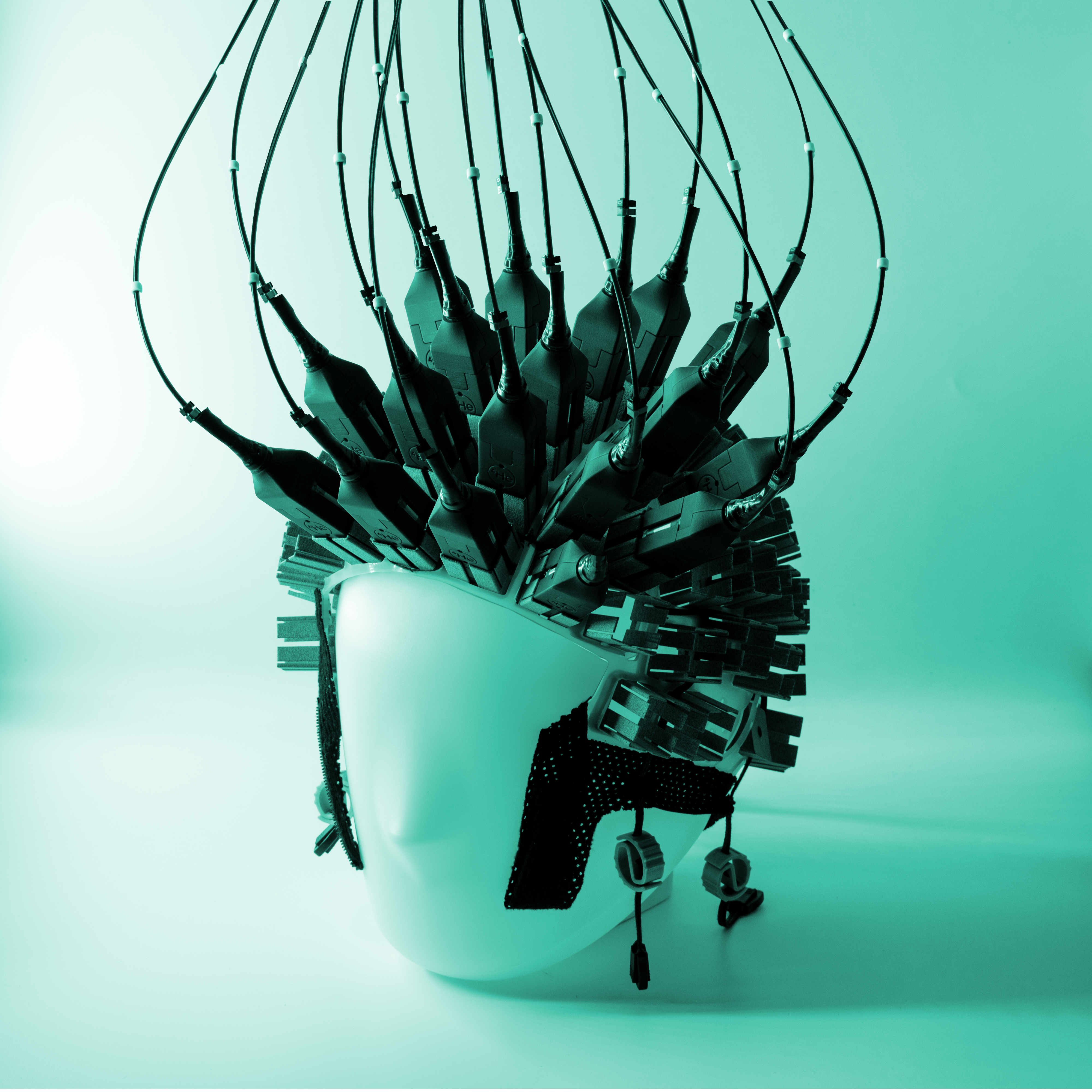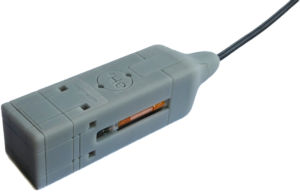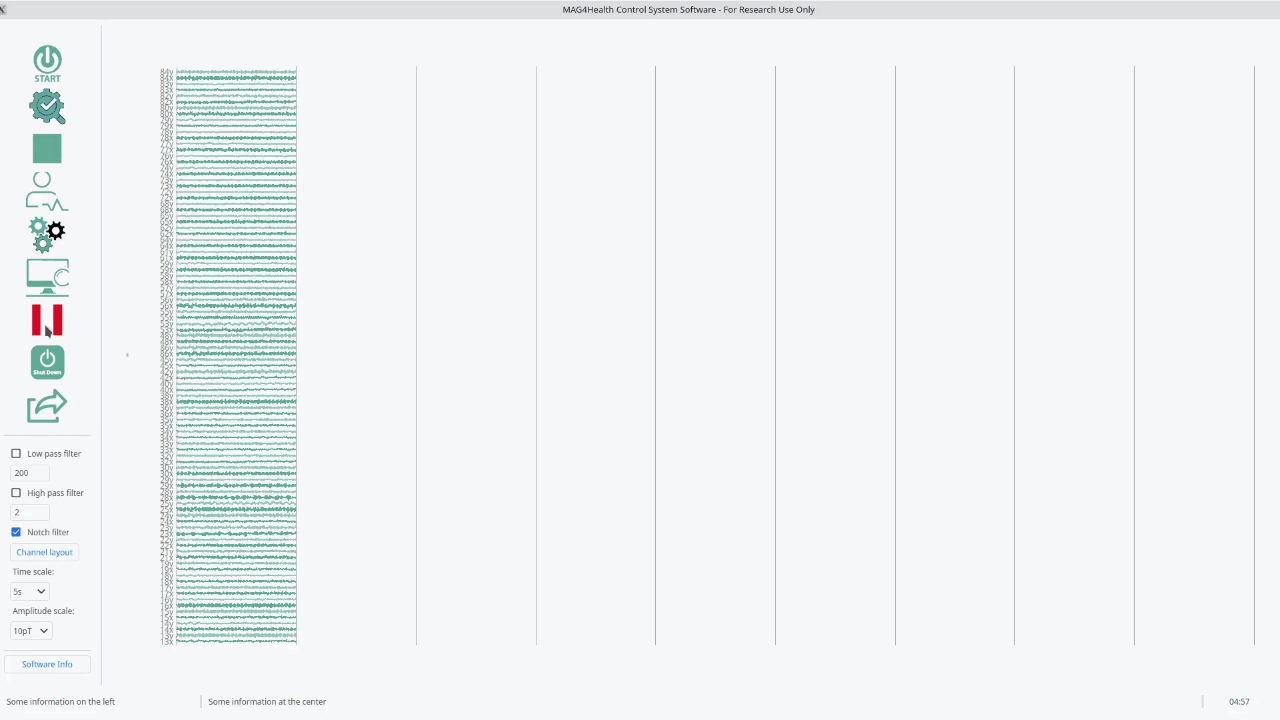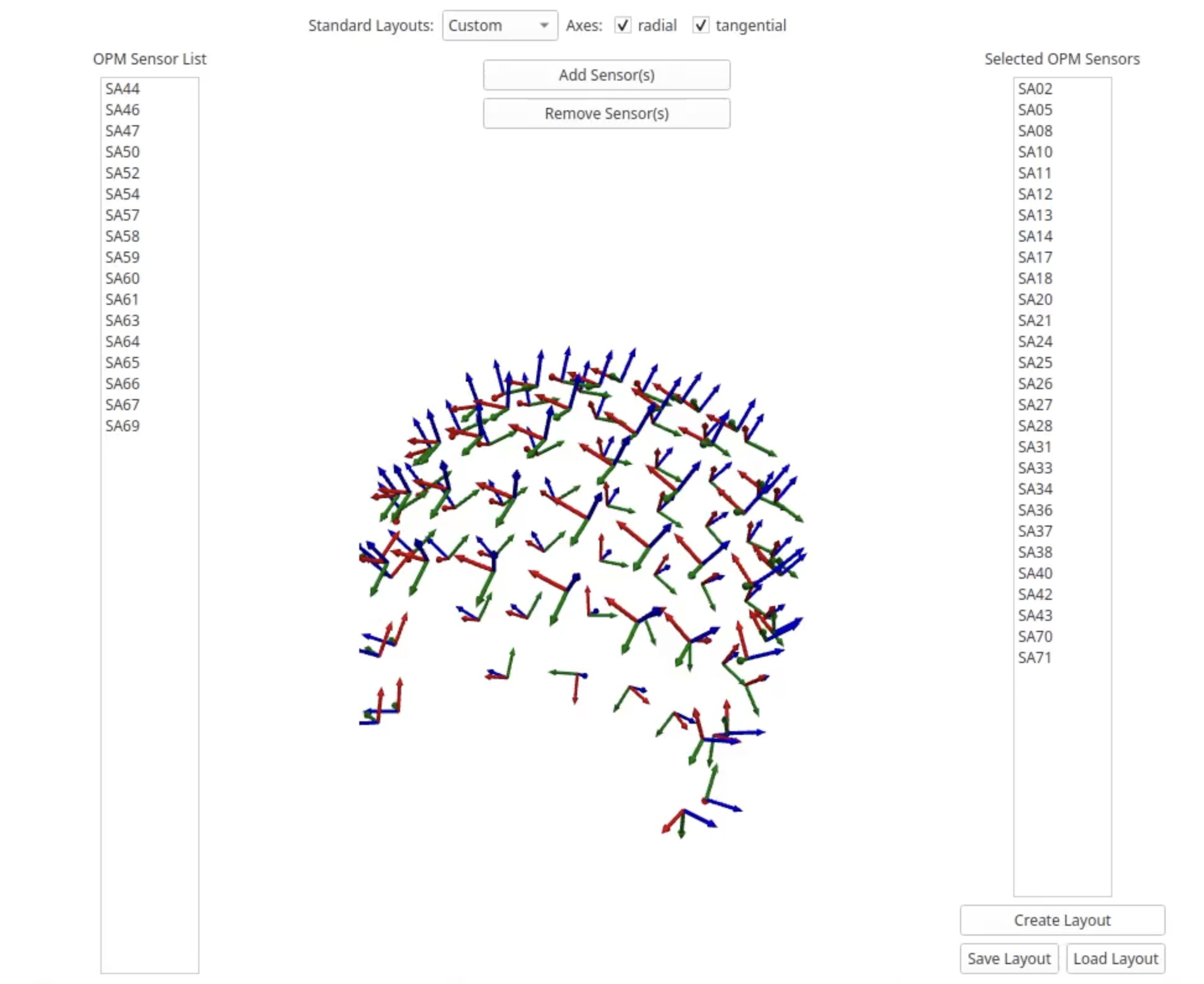
MAG4Health
Quantum-based technology OPM-MEG system
Taking full advantage of room temperature quantum sensor technology to enhance and democratise the use of MEG. This state-of-the-art technology, for >10yrs use in Space applications, aims to be part of the development of new clinical applications for MEG.
Sensors: Room Temperature operation. No heating nor cooling.
Sensors directly on the scalp: no signal loss.
Wearable helmet (one-size fit all).
Large Bandwidth Detection of whole brain dynamics.
High dynamic range compatible with existing magnetically shielded rooms without need for compensation coils
Noise 25 fT/Hz1/2 on 2 of the 3 axis.
High-accuracy measure the brain magnetic field along the 3 axes with continuous self-compensation.
Wearable helmet with a scalable number of sensors: from 16 up to 96 sensors.
Designed with a modular approach for seamless scalability: the tri-axial Helium gas sensor upscale the channels of recordings from 48 up to 288 depending on the helmet model chosen, from 16 to 96 sensors.
Distance matters: our sensors are placed directly on the scalp
- avoid any loss of signal
- move with the head during participant movement
- achieve higher sensitivity and spatial precision than conventional MEG systems that measure at approximately 2 cm distance.
The helmet can adapt to any head shape or size.


Capture the whole-head brain dynamics
With a large frequency bandwidth, up to 2000Hz, our sensors capture a wider range of brain dynamics, including epileptic activity such as High Frequency Oscillations (HFOs), fast ripple.
User-friendly acquisition software
Real-time view and data recording.


Auto-localisation, Sensor position monitoring
We designed and implemented a novel method taking advantage of the 3 axes measurement and 3D coils of our sensor. The localisation on the subject’s head will be performed thanks to a referent coils placed at specific locations around the head.
Technical specifications
| Bandwidth | Covers all the range of the brain oscillatory activities, even fast ripples, more details in sensor specifications | Allow the recording of a wider range of brain dynamics, including epileptic activity such as HFO and fast ripple. |
| Dynamic Range | Compatible with all existing standard MSR designed for MEG – no active field nulling system is required, more details in sensor specifications | Resulting in reduced requirements in magnetic shielding and improvements in susceptibility to background magnetic noise (reduced sensor saturation), with no requirement for additional field-nulling coils. |
| Sensor Noise | Signal-to-noise ration equivalent or better than SQUID MEG for cortical signals, more details in sensor specifications | Lower sensitivity is compensated by the fact that sensors are in direct contact with the scalp, resulting in higher signal. This is possible thanks to the absence of thermal insulation required with other OPM systems. |
| Power Dissipation | Not noticeable, 1 W for a 50 sensor array | Allowing for sensors to operate at room temperature with no issues with the longevity of use caused by thermal heating. This also allows for sensors to be directly positioned and placed on the subject’s scalp which has seen significant improvements in signal-to-noise ratio. |
| Accuracy | Thanks to closed-loop operation : •No drift of the recording with sensor parameter drift •No Cross Axis Projection Error (CAPE) | This driving mode increases the accuracy of the sensor network recordings giving a more accurate reconstruction of brain current (activity), and improves its stability against magnetic disturbances |
| Sensor placement and localization | On flexible helmet, sensors auto- localized | Achieved using a proprietary patented auto-localizing algorithm instrumenting sensors as emitters and receivers for getting their relative position respect to other sensors and to the head reference frame. |
| Sensor Dimension (mm) | 21 x 21 x 54 mm | Allowing for the placement of 96 (adult) and 85 (child) sensors within the helmet. |
| Lifespan | >10 years | Following extensive accelerated ageing tests and based on 4He OPM technology that has been developed for use in Space applications (launched in 2013 and still working). |
Please note, the MAG4Health OPM-MEG System is offered as a Research System, it does not have yet any medical or regulatory approvals in any jurisdiction.
